ALMA Tutorials draft: Difference between revisions
| (20 intermediate revisions by 2 users not shown) | |||
| Line 11: | Line 11: | ||
* [https://almascience.org/ ALMA Science homepage] | * [https://almascience.org/ ALMA Science homepage] | ||
! [[File:CARTA_logo_text.png| | ! [[File:CARTA_logo_text.png|100px|link=https://cartavis.org/]] | ||
| | | | ||
* [https://cartavis.org/ CARTA website] | * [https://cartavis.org/ CARTA website] | ||
| Line 18: | Line 18: | ||
! [[File:Casa_logo_full-200wide.png|75px|link=https://casa.nrao.edu]] | ! [[File:Casa_logo_full-200wide.png|75px|link=https://casa.nrao.edu]] | ||
| | | style="vertical-align:bottom;" | | ||
* [https://casa.nrao.edu CASA homepage]: includes download and installation information | * [https://casa.nrao.edu CASA homepage]: includes download and installation information | ||
* {{casadocs_6.6.1}} | * {{casadocs_6.6.1}} | ||
| Line 24: | Line 24: | ||
* [[Getting Started in CASA]] | * [[Getting Started in CASA]] | ||
To cite CASA, please use:<br>[https://ui.adsabs.harvard.edu/abs/2022PASP..134k4501C/abstract \bibitem<nowiki>[CASA Team et al.(2022)]</nowiki>{2022PASP..134k4501C} CASA Team, Bean, B., Bhatnagar, S., et al.\ 2022, PASP, 134, 114501. doi:10.1088/1538-3873/ac9642] | To cite CASA, please use:<br>[https://ui.adsabs.harvard.edu/abs/2022PASP..134k4501C/abstract \bibitem<nowiki>[CASA Team et al.(2022)]</nowiki>{2022PASP..134k4501C} CASA Team, Bean, B., Bhatnagar, S., et al.\ 2022, PASP, 134, 114501. doi:10.1088/1538-3873/ac9642] | ||
Production version for Cycle 11: '''CASA 6.6.1''' | |||
! [[File:pipeline_logo.png|75px|link=https://almascience.nrao.edu/processing/science-pipeline/]] | ! <font size = 4> [https://almascience.nrao.edu/processing/science-pipeline/ Pipeline] <!--[[File:pipeline_logo.png|75px|link=https://almascience.nrao.edu/processing/science-pipeline/]]--> | ||
| | | style="vertical-align:bottom;" | | ||
* [https://almascience.nrao.edu/processing/science-pipeline ALMA Pipeline webpage] | * [https://almascience.nrao.edu/processing/science-pipeline ALMA Pipeline webpage] | ||
* [[ALMA Pipeline Known Issues]] | * [[ALMA Pipeline Known Issues]] | ||
To cite the ALMA pipeline, please use:<br>[https://ui.adsabs.harvard.edu/abs/2023PASP..135g4501H/abstract \bibitem<nowiki>[Hunter et al.(2023)]</nowiki>{2023PASP..135g4501H} Hunter, T.~R., Indebetouw, R., Brogan, C.~L., et al.\ 2023, PASP, 135, 074501. doi:10.1088/1538-3873/ace216] | To cite the ALMA pipeline, please use:<br>[https://ui.adsabs.harvard.edu/abs/2023PASP..135g4501H/abstract \bibitem<nowiki>[Hunter et al.(2023)]</nowiki>{2023PASP..135g4501H} Hunter, T.~R., Indebetouw, R., Brogan, C.~L., et al.\ 2023, PASP, 135, 074501. doi:10.1088/1538-3873/ace216] | ||
Production version for Cycle 11: '''Pipeline 2024.1.0.8''' | |||
|} | |} | ||
| Line 65: | Line 67: | ||
This is a really long sentence to force the table to fill the full page width otherwise it looks bad. | This is a really long sentence to force the table to fill the full page width otherwise it looks bad. | ||
This is a really long sentence to force the table to fill the full page width otherwise it looks bad. | This is a really long sentence to force the table to fill the full page width otherwise it looks bad. | ||
| style="text-align:center;" rowspan=4 | [[File:TWHya.png|100px]] | |||
|- | |- | ||
! [[First Look at Self Calibration]] | ! [[First Look at Self Calibration]] | ||
| Line 92: | Line 94: | ||
{| class="wikitable" | {| class="wikitable" | ||
! [[ALMA Imaging Pipeline Reprocessing | | ! [[ALMA Imaging Pipeline Reprocessing | Customized Pipeline Imaging]] | ||
| | | | ||
This is a really long sentence to force the table to fill the full page width otherwise it looks bad. | This is a really long sentence to force the table to fill the full page width otherwise it looks bad. | ||
| Line 99: | Line 101: | ||
! [[Guide to the NA Imaging Template | NA Manual Imaging Templates]] | ! [[Guide to the NA Imaging Template | NA Manual Imaging Templates]] | ||
| | | This guide describes the template scripts used to manually image data for quality assurance by the North American ALMA Science Center (NAASC). | ||
|- | |- | ||
! [[Automasking Guide | Automasking]] | ! [[Automasking Guide | Automasking]] | ||
| | | This guide describes how to automatically mask clean regions during non-interactive cleaning. | ||
|- | |- | ||
|} | |} | ||
'''Jump to special imaging topics from the End to End guides:''' | |||
* [[AntennaeBand7_Imaging | AntennaeBand7 > Mosaic Imaging]] | * [[AntennaeBand7_Imaging | AntennaeBand7 > Mosaic Imaging]] | ||
* [[IRAS16293_Band9_-_Imaging | IRAS16293 Band9 > Mosaic Imaging]] | * [[IRAS16293_Band9_-_Imaging | IRAS16293 Band9 > Mosaic Imaging]] | ||
* [[M100_Band3_Combine | M100 Band3 > | * [[M100_Band3_Combine | M100 Band3 > Data Combination]] | ||
* [[3C286_Band6Pol_Imaging | 3C286 Band6 > Full Polarization Imaging]] | * [[3C286_Band6Pol_Imaging | 3C286 Band6 > Full Polarization Imaging]] | ||
* [[Sunspot_Band6_Feathering | Sunspot Band6 > | * [[Sunspot_Band6_Feathering | Sunspot Band6 > Data Combination]] | ||
== End to End Guides (Manual Calibration) == | == End to End Guides (Manual Calibration) == | ||
These guides are useful tools for those who would like to learn the process of calibration and imaging in detail. They use publicly-available [https://almascience. | These guides are useful tools for those who would like to learn the process of calibration and imaging in detail. They use publicly-available [https://almascience.org/alma-data/science-verification ALMA Science Verification] data that illustrate several different ALMA capabilities. The links below lead to overview pages for each observation. The guides themselves are linked from the overview pages. | ||
{| class="wikitable" | {| class="wikitable" | ||
! | ! [[AntennaeBand7]] | ||
| | | | ||
* Band 7 (345 GHz, 0.87 mm) | * Band 7 (345 GHz, 0.87 mm) | ||
* CO 3-2 spectral line | * CO 3-2 spectral line | ||
* Antennae Galaxy Merger (NGC 4038/4039) | * Antennae Galaxy Merger (NGC 4038/4039) | ||
* North and South mosaics | * North and South mosaics | ||
| style="text-align:center;" | [[File:604px-Antennae_galaxies_xl.jpg|100px]] | |||
|- | |- | ||
! | ! [[IRAS16293Band9]] | ||
| | | | ||
Discusses full calibration of 12m interferometry Band 9 (high frequency) data, including inspection of the data for flagging, and plotms commands to recreate plots typically included in a QA2 weblog. Also discusses | Discusses full calibration of 12m interferometry Band 9 ('''high frequency''', 650 GHz, 0.46 mm) data of a protostellar cluster, including inspection of the data for flagging, and plotms commands to recreate plots typically included in a QA2 weblog. Also discusses imaging of '''mosaic data''', including '''self-calibration''' and generation of '''image cubes''' and '''moment maps'''. | ||
| style="text-align:center;" | [[File:Intro.jpg|200px]] | |||
|- | |- | ||
! | ! [[M100 Band3]] | ||
| | | | ||
Band 3 (100 GHz, 3 mm) on M100 demonstrates Single Dish (Total Power) data reduction and 12m , 7m, Total Power combination procedures. | Band 3 (100 GHz, 3 mm) on M100 demonstrates '''Single Dish''' (Total Power) data reduction and 12m, 7m, Total Power '''data combination''' procedures. | ||
| style="text-align:center;" | [[File:M100_NASA.jpg|100px]] | |||
|- | |- | ||
! | ! [[3C286 Polarization]] | ||
| | | | ||
Standard calibrations and '''polarization calibration''' (XX, XY, YX, YY) of 3c286 in Band 6 (230 GHz, 1.3 mm), a quasar frequently used as a flux calibrator source. '''Full Stokes imaging''' (IQUV), '''self-calibration''', and analysis of '''polarization intensity''' and '''polarization angle''' using both CARTA and numerical methods. | |||
| style="text-align:center;" | [[File:VLA_3c286.png|200px]] | |||
|- | |- | ||
! | ! [[Sunspot Band6]] | ||
| | | | ||
* Band 6 (230 GHz, 1.3 mm) | * Band 6 (230 GHz, 1.3 mm) | ||
| Line 173: | Line 156: | ||
* Calibration and imaging | * Calibration and imaging | ||
* Helper scripts | * Helper scripts | ||
|- | | style="text-align:center;" | [[File:Sunspot_SolarMonitor.png|150px]] | ||
|} | |} | ||
| Line 179: | Line 162: | ||
== Special Topics == | == Special Topics == | ||
* [[ALMA Renormalization Correction | Renormalization]] | * [[ADMIT Products and Usage]]: This guide discusses how to use the ALMA Data-Mining Toolkit (ADMIT) and customize it for your data. | ||
* [[DataWeightsAndCombination | Data Weights]] | * [[Analysis Utilities]]: A Python module containing utilities for analysis and plotting. | ||
: | * [[ALMA Renormalization Correction | Renormalization]]: A fix for amplitude calibration issues caused by the ALMA normalization strategy for sources with strong line emission. | ||
* [[Simulating | * [[DataWeightsAndCombination | Data Weights]]: A guide to CASA data weights and how to ensure they are correct for data combination. Relevant for data from Cycles 0, 1, and 2. | ||
* [[Guide To Simulating ALMA Data]]: An overview of simulation as it pertains to ALMA. | |||
* [[Simulating Observations in CASA]]: All simulation guides (for ALMA, VLA, ngVLA, etc.) | |||
== | == Resources == | ||
* [[Archived ALMA CASAguides]] | * [[Archived ALMA CASAguides]] | ||
* [https://almascience.org/about-alma/proposing/sensitivity-calculator ALMA Sensitivity Calculator] | |||
* [https://almascience. | |||
* [[Karl G. Jansky VLA Tutorials]] | * [[Karl G. Jansky VLA Tutorials]] | ||
* [[Past MM/Submm Guides]]: | * [[Past MM/Submm Guides]]: Old CASA guides for non-NRAO telescopes. | ||
<!-- | <!-- | ||
Latest revision as of 21:57, 18 November 2024
Introduction
This page contains tutorials to guide ALMA users through some common types of data imaging and analysis using CASA with example ALMA datasets. Here are some links to get started:

|
|||
|---|---|---|---|
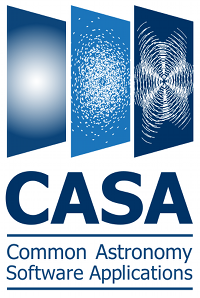
|
To cite CASA, please use: Production version for Cycle 11: CASA 6.6.1 |
Pipeline |
To cite the ALMA pipeline, please use: Production version for Cycle 11: Pipeline 2024.1.0.8 |
Basic Imaging and Analysis
ALMA data are delivered to users with calibrations applied and they are ready for imaging. The following "First Look" tutorials provide short examples of common next steps a user may take with their calibrated data. These guides use an example ALMA observation of TW Hydra.
| First Look at Imaging (continuum) |
This is a really long sentence to force the table to fill the full page width otherwise it looks bad. This is a really long sentence to force the table to fill the full page width otherwise it looks bad. |
File:TWHya.png |
|---|---|---|
| First Look at Self Calibration | description | |
| First Look at Line Imaging | description | |
| First Look at Image Analysis | description |
Older versions of these guides are archived here: ALMA First Look
Advanced Imaging
| Customized Pipeline Imaging |
This is a really long sentence to force the table to fill the full page width otherwise it looks bad. This is a really long sentence to force the table to fill the full page width otherwise it looks bad. |
|---|---|
| NA Manual Imaging Templates | This guide describes the template scripts used to manually image data for quality assurance by the North American ALMA Science Center (NAASC). |
| Automasking | This guide describes how to automatically mask clean regions during non-interactive cleaning. |
Jump to special imaging topics from the End to End guides:
- AntennaeBand7 > Mosaic Imaging
- IRAS16293 Band9 > Mosaic Imaging
- M100 Band3 > Data Combination
- 3C286 Band6 > Full Polarization Imaging
- Sunspot Band6 > Data Combination
End to End Guides (Manual Calibration)
These guides are useful tools for those who would like to learn the process of calibration and imaging in detail. They use publicly-available ALMA Science Verification data that illustrate several different ALMA capabilities. The links below lead to overview pages for each observation. The guides themselves are linked from the overview pages.
| AntennaeBand7 |
|
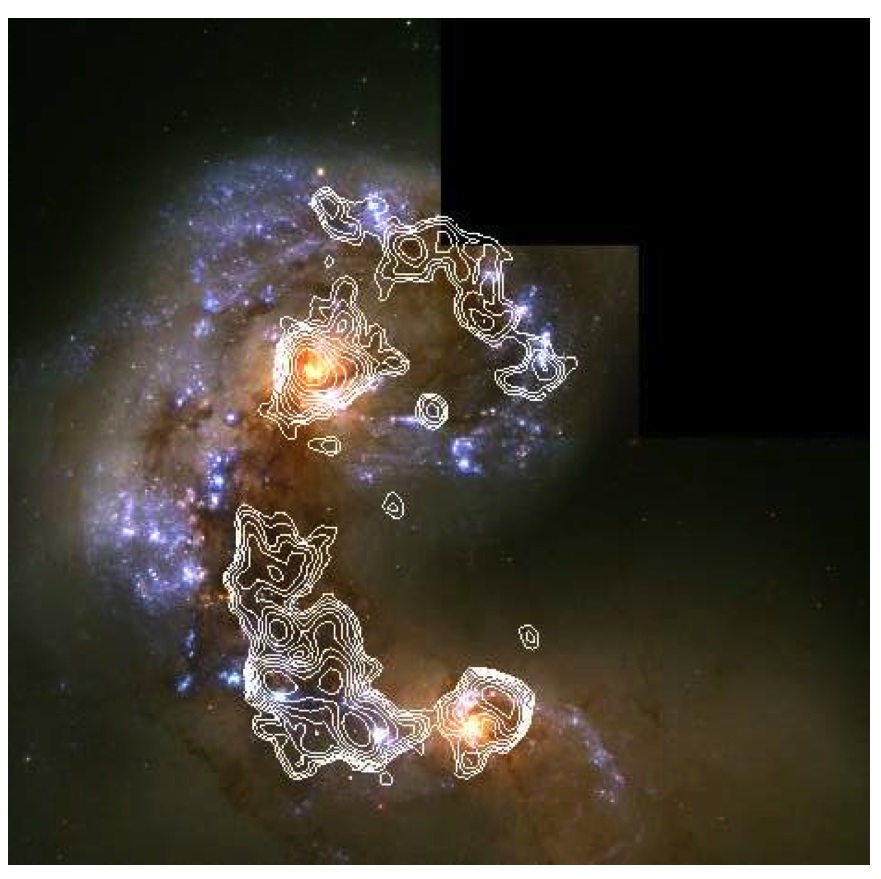
|
|---|---|---|
| IRAS16293Band9 |
Discusses full calibration of 12m interferometry Band 9 (high frequency, 650 GHz, 0.46 mm) data of a protostellar cluster, including inspection of the data for flagging, and plotms commands to recreate plots typically included in a QA2 weblog. Also discusses imaging of mosaic data, including self-calibration and generation of image cubes and moment maps. |

|
| M100 Band3 |
Band 3 (100 GHz, 3 mm) on M100 demonstrates Single Dish (Total Power) data reduction and 12m, 7m, Total Power data combination procedures. |
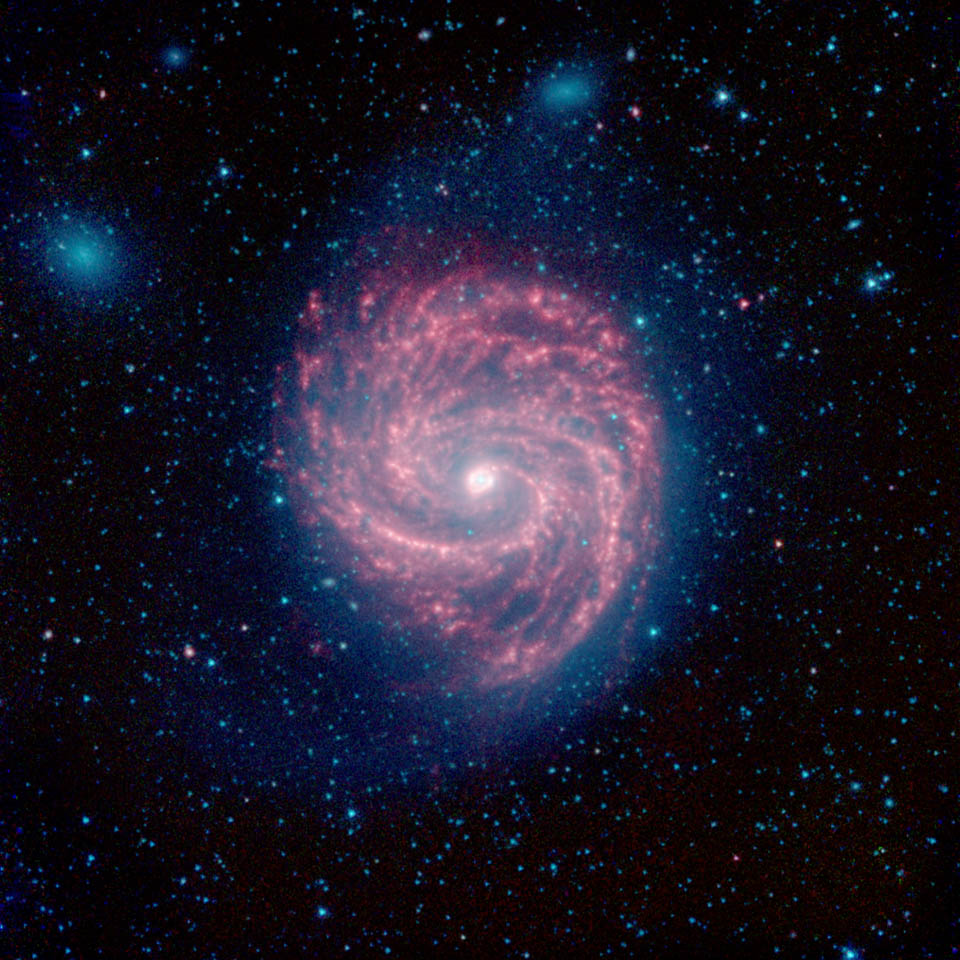
|
| 3C286 Polarization |
Standard calibrations and polarization calibration (XX, XY, YX, YY) of 3c286 in Band 6 (230 GHz, 1.3 mm), a quasar frequently used as a flux calibrator source. Full Stokes imaging (IQUV), self-calibration, and analysis of polarization intensity and polarization angle using both CARTA and numerical methods. |
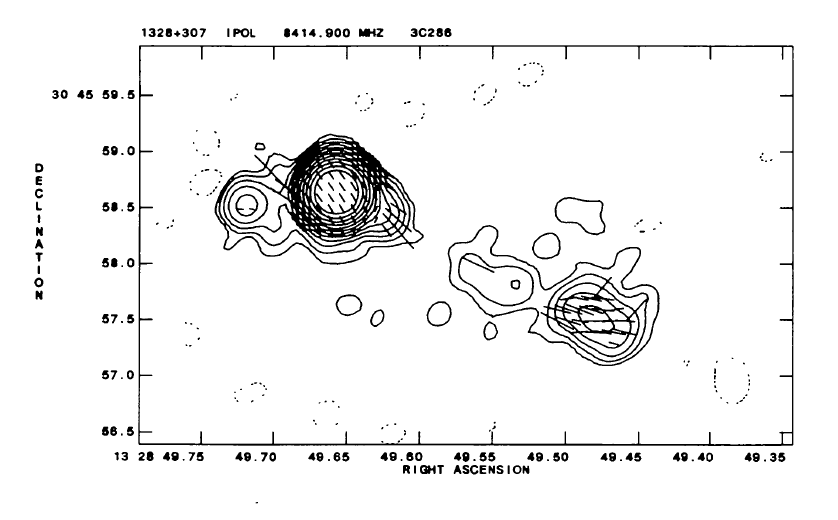
|
| Sunspot Band6 |
|
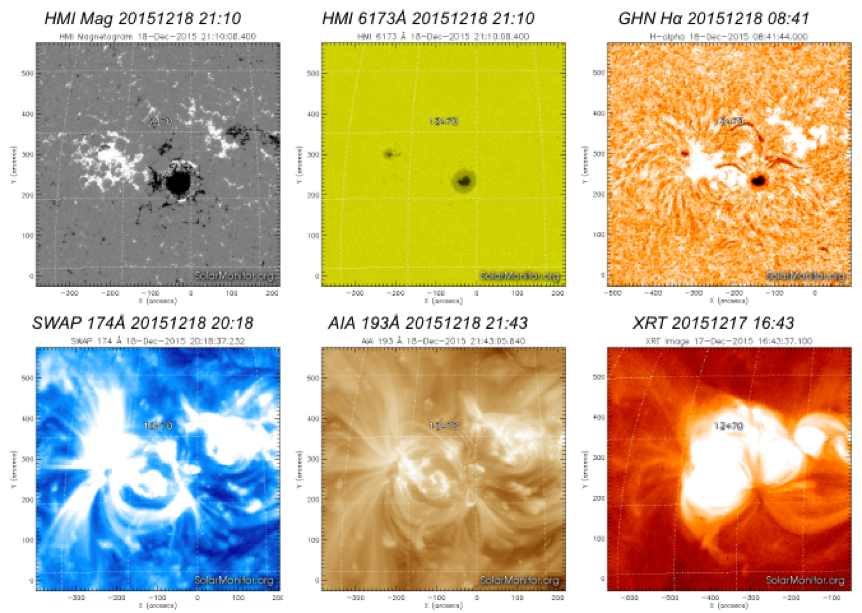
|
Special Topics
- ADMIT Products and Usage: This guide discusses how to use the ALMA Data-Mining Toolkit (ADMIT) and customize it for your data.
- Analysis Utilities: A Python module containing utilities for analysis and plotting.
- Renormalization: A fix for amplitude calibration issues caused by the ALMA normalization strategy for sources with strong line emission.
- Data Weights: A guide to CASA data weights and how to ensure they are correct for data combination. Relevant for data from Cycles 0, 1, and 2.
- Guide To Simulating ALMA Data: An overview of simulation as it pertains to ALMA.
- Simulating Observations in CASA: All simulation guides (for ALMA, VLA, ngVLA, etc.)
Resources
- Archived ALMA CASAguides
- ALMA Sensitivity Calculator
- Karl G. Jansky VLA Tutorials
- Past MM/Submm Guides: Old CASA guides for non-NRAO telescopes.
 |
 |
 |
|
